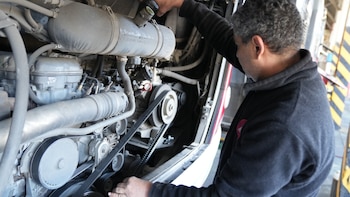
He would get into the car and drive from his home in the Almagro neighborhood to Ciudad Universitaria, in Núñez, on the north of the Buenos Aires map. Some, when they saw her arrive, they bowed. As an emeritus professor at the University of Buenos Aires, she continued to go every day of the week to the office she opened on the third floor of Pavilion II, to the desk she commissioned, to the library she completed and to the laboratory she developed. I was 88 years old when a highly transmissible infectious disease caused by a virus germinated in some Chinese experiment, brew or reservoir paralyzed the world, economies and mobilities.
He stopped going because of the coronavirus. What he did not stop is to work, to study, to improve himself and to advise. When someone asks her how she is doing or what she is doing, she usually responds that she is reading. “And what do you read?” , they ask him. “I'm still reading chemistry,” he says, as if it were a no-brainer. She still says because she is 90 years old - she was born on January 12, 1932 -, because she began to take an interest in exact sciences when she was in high school at Liceo 2, next to Rivadavia Park, in the late 1940s and because she still - even assuming the position of eminence in the subject - she is still passionate about chemistry.
Rosa Muchnik de Lederkremer has a wikipedia page, 1,670 results on Google, three children, four grandchildren, more than 200 research papers published in international journals, as many book chapters, 25 doctoral theses, three of them awarded and all rated as outstanding, and a shelf full of decorations, recognitions and distinctions. To highlight: he won the Konex Platinum Award in 2013 and the Konex Awards 1983 and 2013. When everyone believed that she would no longer receive any more awards, the Buenos Aires legislature named her outstanding personality in the field of science for being the first woman to be a professor in the Department of Chemistry at the University of Buenos Aires.
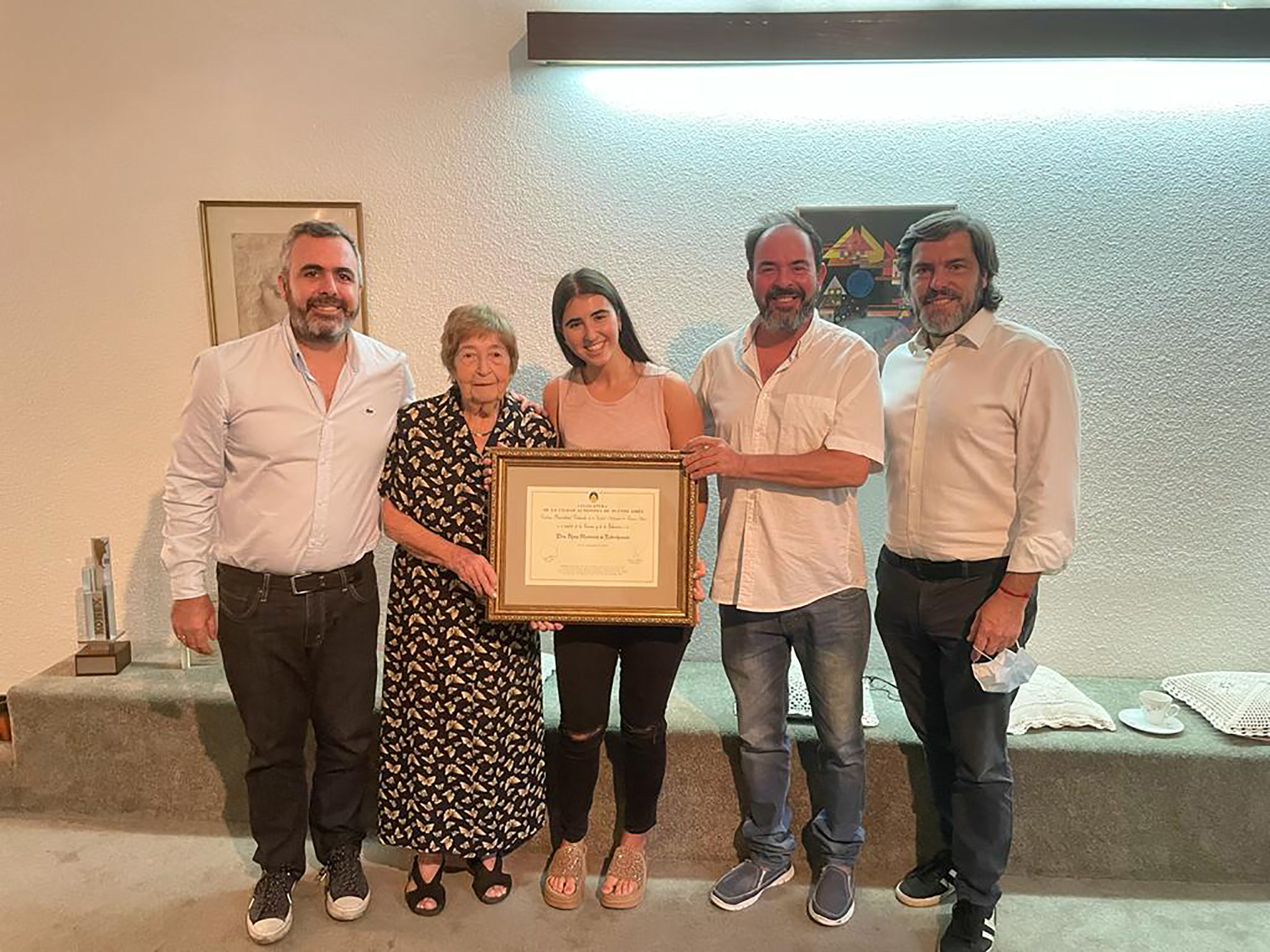
“Well, let this be the last one,” their children Miguel and Javier ask jokingly. The first is “the computer scientist”, the second is “the multimedia: musician and designer”. The third, who is truly the first time, is Gerardo, the only one who continued the family legacy: doctor of chemical sciences, he became a researcher at the University of Tel Aviv. “With one that worked out well you reached you,” she is carried by her other children, who were present at her last appointment.
The award ceremony coincided with International Women's Day. He received it from Matías López, a deputy of the Buenos Aires City Legislature, and accompanied by his son Miguel and his granddaughter Magali. “It's good that you recognize your work, a job that for me is a hobby. Now I'm writing reviews from home, talking to people at the institute, I keep reading and contributing ideas. I have people who trained with me who are now professors. Even one of my theses students is the director of the department, which makes me very happy. We are always exchanging ideas because they more or less follow the project that I started: glycobiology of trypanosoma cruzi, the agent of Chagas disease”.
Before focusing her research on Chagas disease, she had to be a woman in an Argentina in the 1950s. While he warned that Chemistry had more employment than the other exact sciences he liked, on September 9, 1947, Law 13.010 was enacted, which established compulsory female voting throughout the country. It had been more than sixty years since Cecilia Grierson became the first Argentine physician, after graduating from the Faculty of Medical Sciences of the UBA, when her professors' high school chemistry classes helped to guide her vocation.
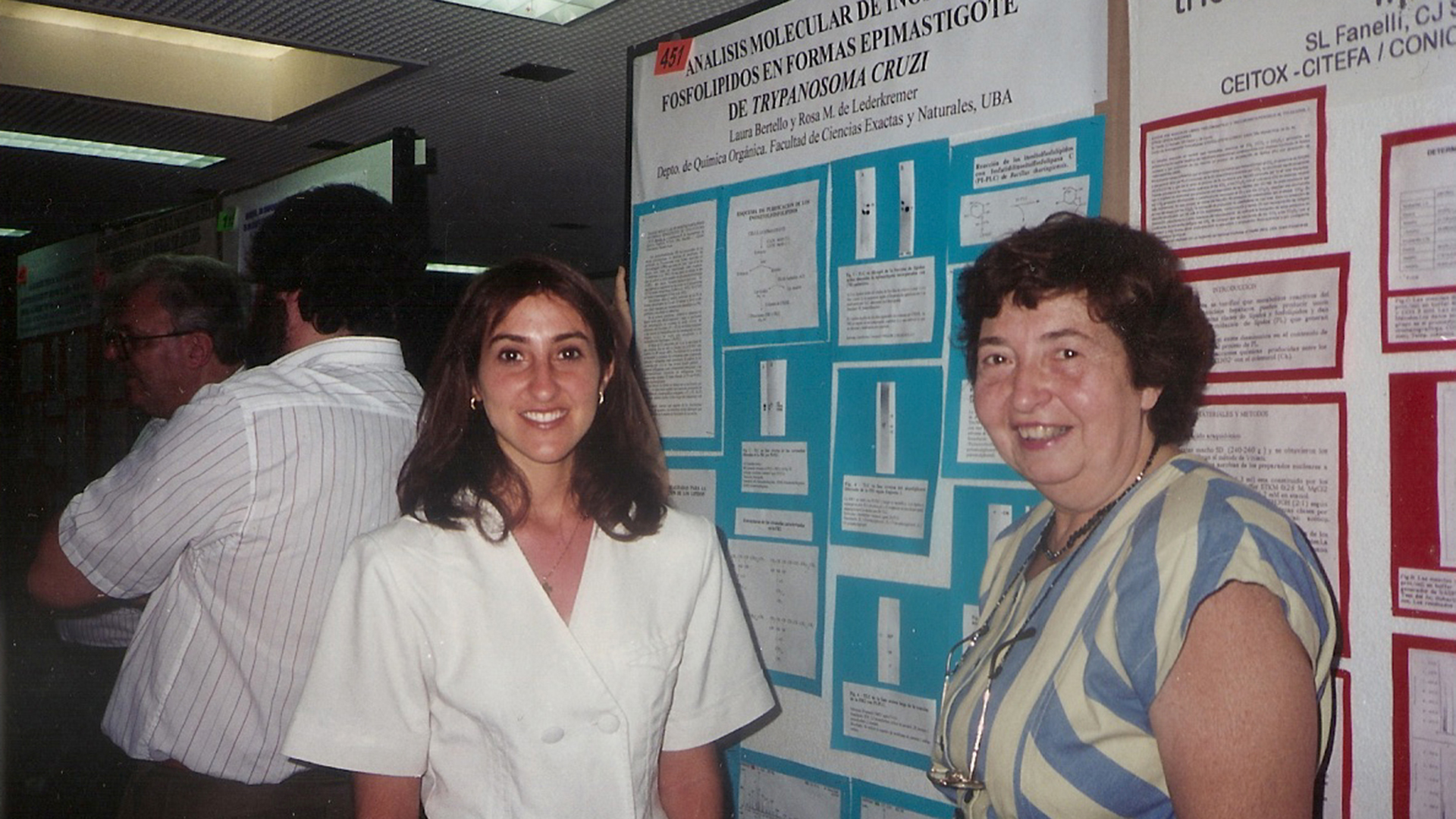
He did his university degree from 1948 to 1953. There were few women in the course. He preferred to specialize in organic chemistry, but the department had become headless and there was no professor who could direct his thesis: for political reasons he had emigrated to a private company. The professor of microbiology, a subject with which he graduated, suggested that he carry out his research in the laboratories of Obras Sanitaria de la Nación in Palermo with Dr. Osvaldo Peso. His work consisted in the determination of vitamin B12 by a microbiological method in sewage sludge. He defended it in the Department of Biological Chemistry in 1956 with an outstanding qualification: it took him only two years because he did not have to study separate subjects and because he had programmed the family dynamics to work.
“My daughter received a doctor in chemistry,” her mother, Soulamit (Zulema, Argentinized) Ravitz, said proudly. Sometimes, out of jealousy or period micromachismo, they told her that it didn't make her a real doctor. In '56 he directed his professional career towards organic chemistry. Dr. Jorge Deferrari, who had returned to university after the self-described Liberating Revolution of September 16, 1955, needed teaching assistants: he called for an internal competition to take office, since at that time there was no regular competition in the faculties.
“Four men showed up and I, the only woman. The head of the chair, the one who interviewed us, read my background. I had a very good average and had already done my thesis. 'I'm going to hire her even if she's a woman', he told me, half jokingly, half seriously. So I tell you: look how we evolve. Thank God we have evolved a lot in terms of gender,” she says on the phone from her home in Almagro, where she says that today there are more chemicals than chemicals in classrooms, in teaching and in industry.
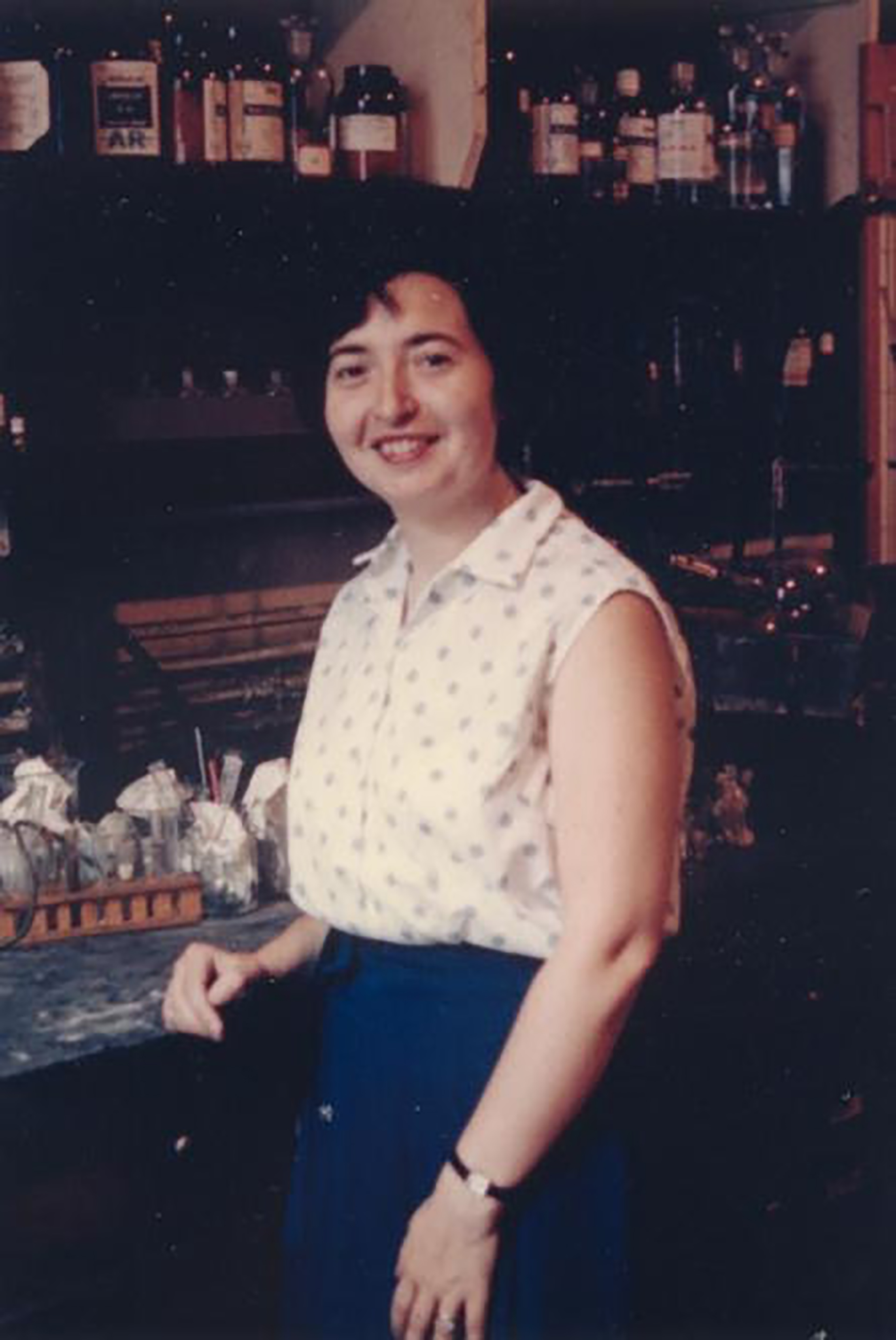
He ensures that he has not suffered discrimination in the university, academic, and labor spheres. He assumed, almost without question, the cultural impositions of the period. Gender inequality is overlapped and translated into its self-demand. “I didn't perceive any suspicion or judgment for being a woman. But he was very self-demanding. I knew that a woman has to work and fulfill more than a man in order not to receive criticism. It was like that. At that time to be recognized you had to work twice as much as a man.”
She was far-sighted: she tried to avoid family occupations “reserved” for women. She programmed her life to combine her professional career with her role as a mother. In his first year as a student, he became a boyfriend with Jehoszua Lederkremer. They attended and received at the same time. They programmed that she would do the thesis first and then he. They complemented each other: they coordinated times of study, leisure, family and home. “It's not incompatible to pursue a career and have a family. For that, you have to have a good partner and make things clear beforehand: I wanted to follow my vocation,” he says.
They had Gerardo, their first child, after she finished her thesis. It was an ad honorem investigation process that required eight hours a day of study. They took her to be a teaching assistant in the Department of Organic Chemistry: the pay was low and the weekly load was only twelve hours. A year later, in 1958, “full dedication” was articulated, a program of benefits for teachers, in addition to teaching classes, to dedicate their time to developing research. Rosa started working with Dr. Deferrari in one of the few South American departments that at that time analyzed carbohydrates. His first research: the structure of polysaccharides found in the fungi of the coihue trees in the south of the country.
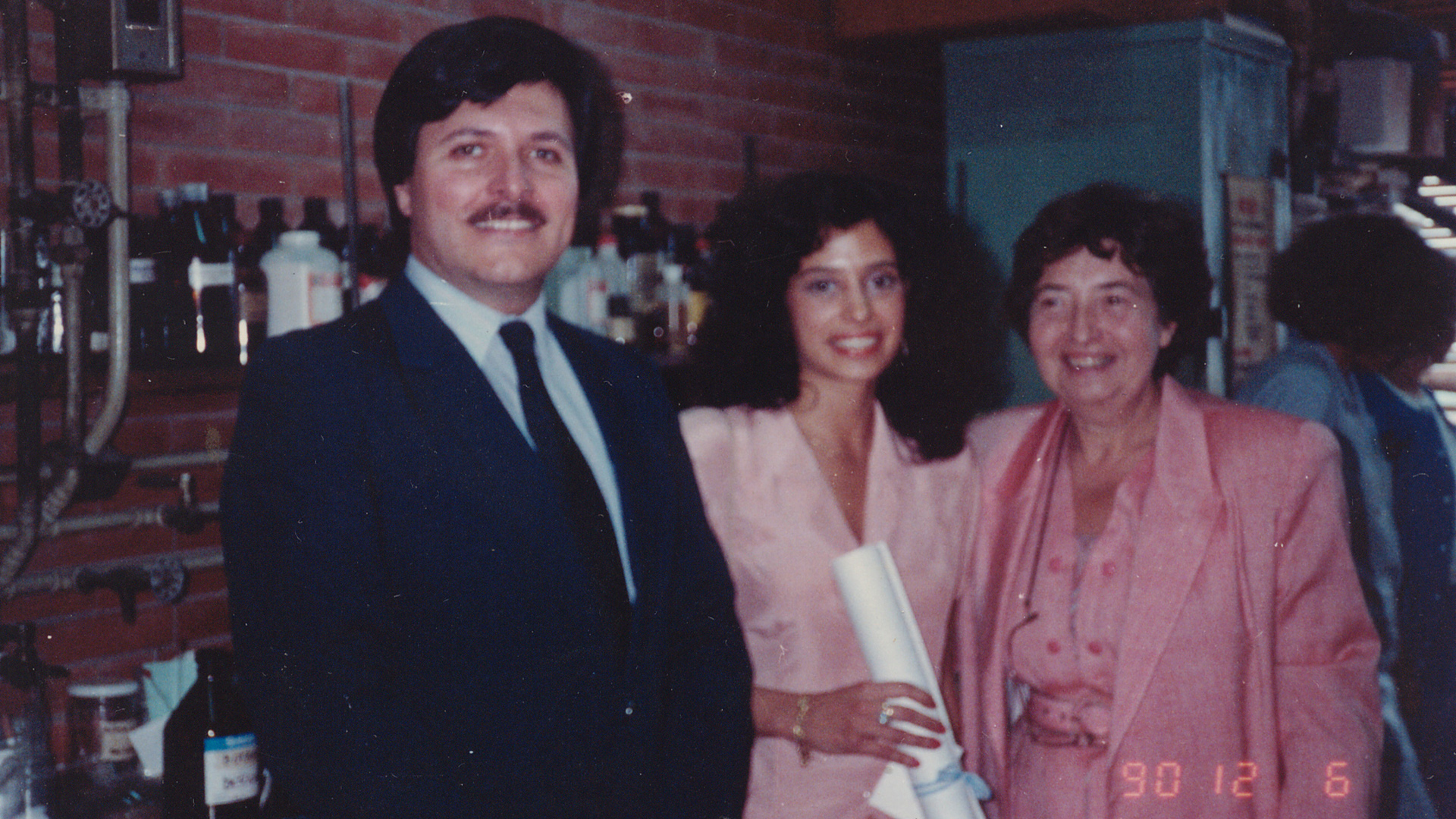
In 1962, in the first series of external scholarships awarded by CONICET, he obtained the opportunity to study at Ohio State University, with renowned scientist Stephen Wolfram. They went there with her husband, who accompanied her without an assigned job, and their four-year-old son. She completed a postdoctoral degree in which three women shared space with thirty other men. They stayed until 1965: they returned because she had considered the stay sufficient. I wanted to have other children and raise them in Argentina.
He returned to the country and began the procedures to enter the Research Career, which he was only able to access two years later, in 1967. By that time her second son, Miguel, had already reached her first year and she was achieving the feat that would be recognized by the Legislature of her city 55 years later: winning the regular contest for adjunct professor in organic chemistry, which made her the first woman to be appointed professor in the Department of Chemistry of the University of Buenos Aires.
Javier, their third son, was born in 1972. She was still working on carbohydrates. Two years later, it was her turn to accompany her husband's work adventure. The destination: Sao Paulo, Brazil. He offered his knowledge at the Federal University of São Paulo. His request escalated to Dr. Walter Colli, who had detected the first glycoprotein in the parasite trypanosoma cruzi, the agent of Chagas disease. He needed a chemist who specializes in carbohydrates. In the mid-1970s and in Brazil, in a laboratory nurtured by biologists and doctors, Rosa Muchnik found the area of study where she would anchor her vast career.
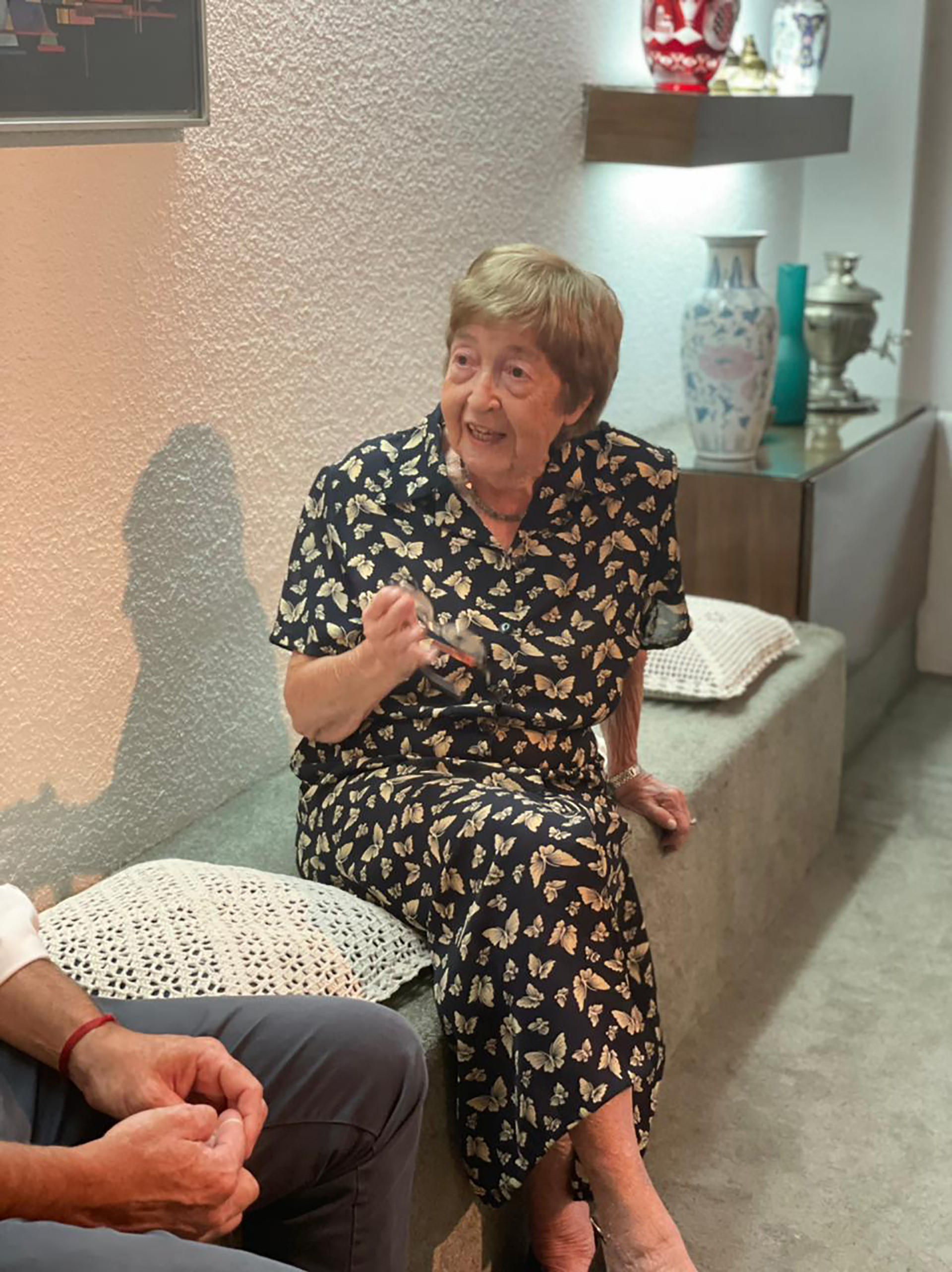
Trypanosoma cruzi, Chagas disease, vinchuca. At the age of 90, he is still studying, researching and working to devise a vaccine that neutralizes the parasite that is transmitted through the feces of the vinchuca. “I was very interested because it is a common disease in Brazil and Argentina. The vinchuca is a cultural issue in the north of the country, where people live in houses with straw roofs and almost live with these insects. Investigations are almost never finished: one thing brings another. There is still no definitive thing for a vaccine and it is difficult to predict when we can come to that. There are medicines, but they have quite a lot of side effects in the acute part of the disease. It wouldn't hurt to find something better...”
Therefore, when people ask him how he is doing or what he is doing, he will continue to answer “I am still reading chemistry”.
KEEP READING:
Últimas Noticias
Debanhi Escobar: they secured the motel where she was found lifeless in a cistern

The oldest person in the world died at the age of 119

Macabre find in CDMX: they left a body bagged and tied in a taxi
The eagles of America will face Manchester City in a duel of legends. Here are the details

Why is it good to bring dogs out to know the world when they are puppies


